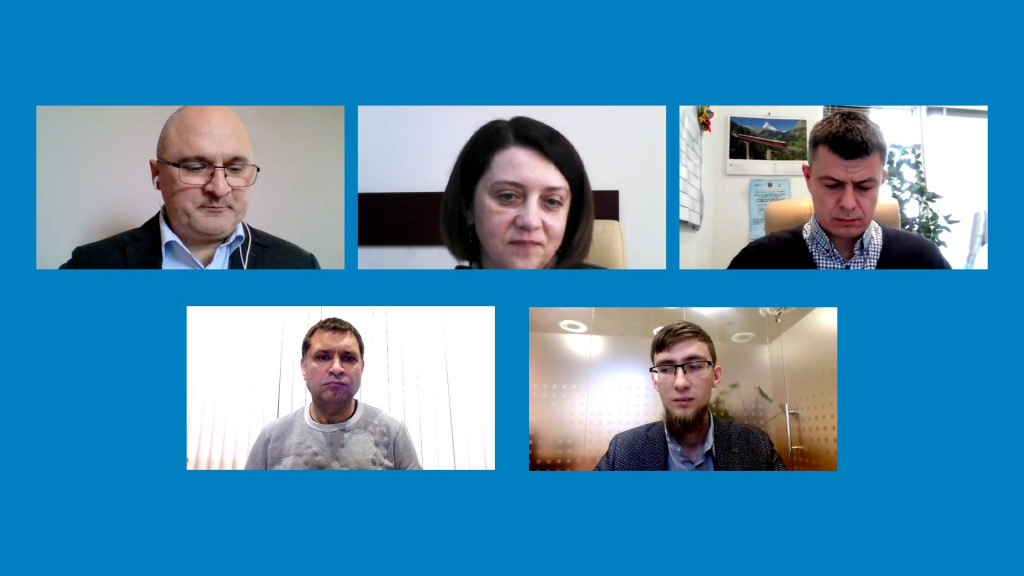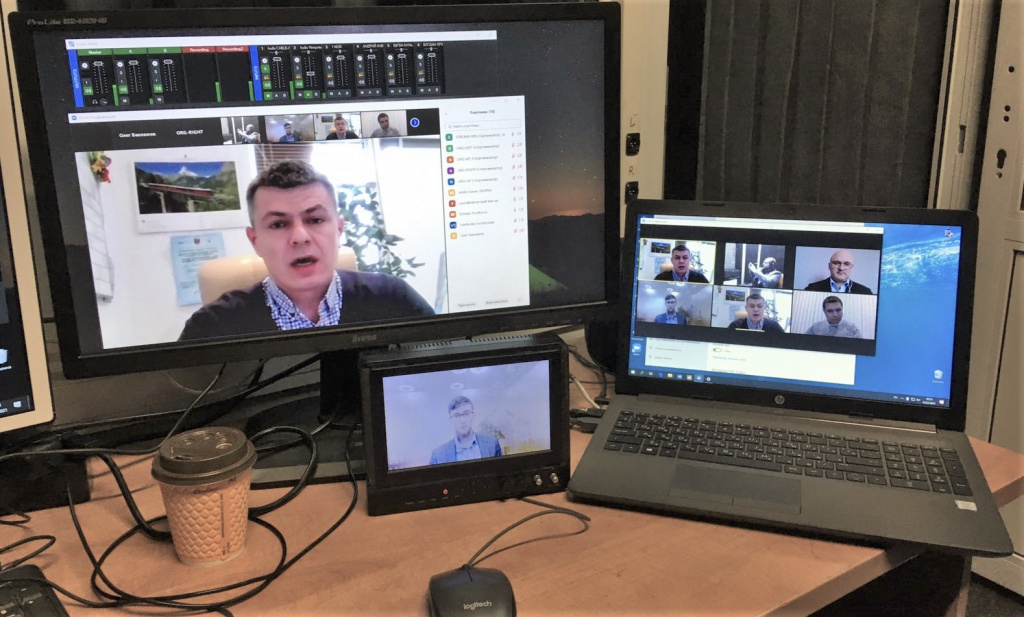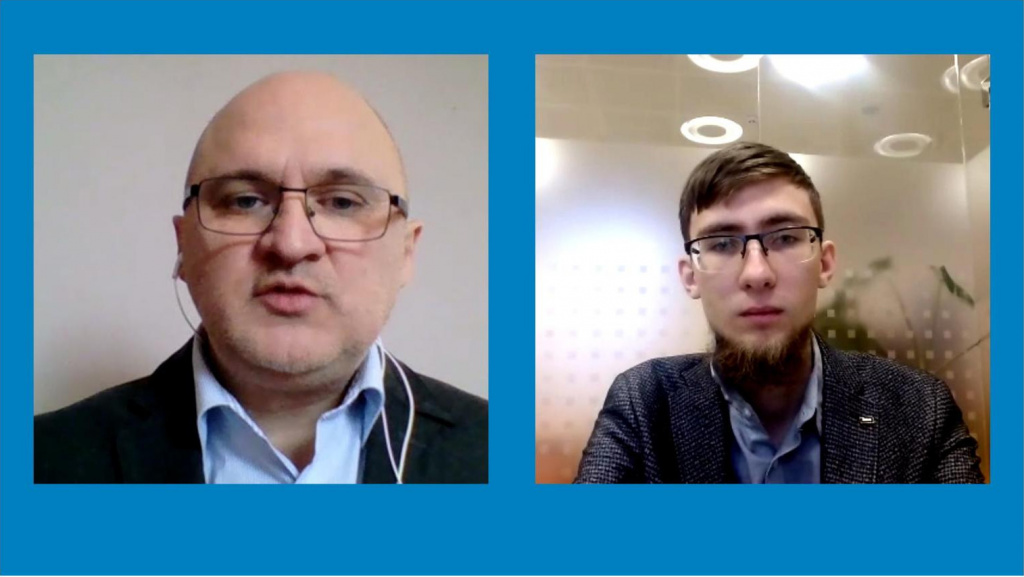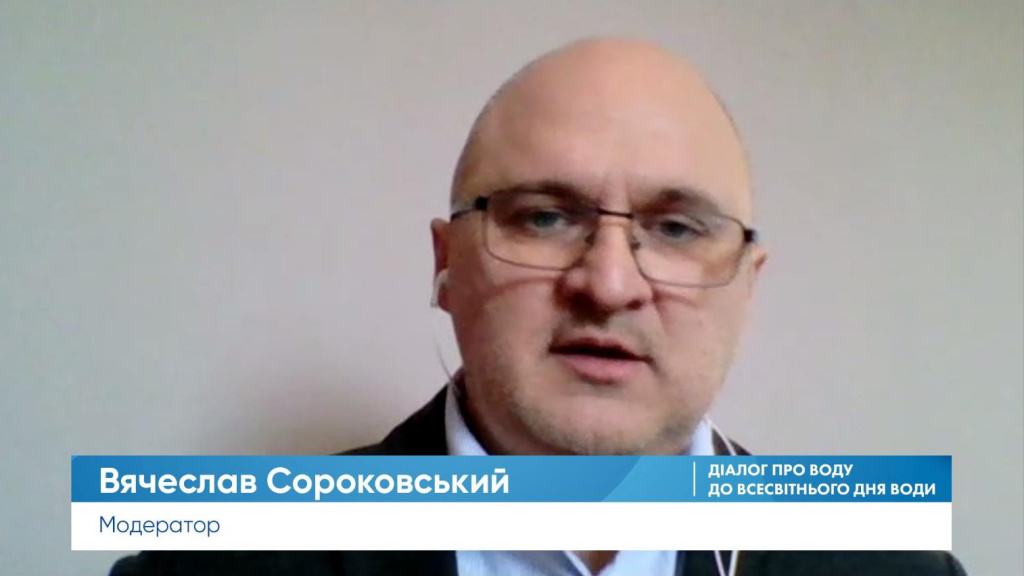Water Supply and Sanitation in Ukraine. What's Next?
On March 22, a "Dialogue on Water for World Water Day: Management Models" was held with the DESPRO project's support.The participants of the dialogue, organized on World Water Day, were Olga Babiy, a member of the National Commission for State Regulation of Energy and Utilities, Yevhen Kun, CEO of "Interproject" LLC, Bohdan Prokhorov, economist of the Center for Economic Strategy, and Andriy Kavun, expert of the Swiss-Ukrainian Decentralization Support project DESPRO. The dialogue was moderated by the DESPRO expert Viacheslav Sorokovsky.

The aim of this year's World Water Day is to raise awareness of water issues, the global water crisis, as well as achieve the Sustainable Development Goal (SDG) 6: water and sanitation for all by 2030.
The event was a logical continuation of the previous national water dialogue, which covered many key issues of this sector in Ukraine: policy priorities, policy instruments in this area, funding: where it comes from and where it goes, and how to manage the service most effectively. One of the conclusions was that the challenges of service management are far from exhausted. And for communities that, due to decentralization in Ukraine, now feel able to address the issue of water supply and sanitation, finding an effective way to manage water services is extremely important.
Thus, on March 22, experts continued the dialogue on the future of water supply and sanitation in Ukraine.

DESPRO expert Andriy Kavun noted the tendency to choose a communal enterprise as a water supply services provider, which is currently observed in Ukrainian communities. "The situation with water supply in urban and rural areas is significantly different. In cities, systems are usually already established, and after the amalgamation of communities, they were transferred respectively to them. However, today only up to 30% of rural areas have access to a water supply service, and not all of these 30% have an effective service delivery mechanism. Only about 2% have sewerage. Today in rural areas there are two types of water supply management approaches:
1. A form of a communal enterprise,
2. A service cooperative.
The latter became widespread in village councils before the amalgamation of communities. Now communities choose a communal enterprise because businesses are not yet quite ready to go into this industry, and there are reasons for this. These are scattered settlements, many have low density of buildings, worn-out infrastructure, as well as outdated solutions that require significant investments. That's why communities choose the form of communal enterprises for management, because the service should be provided today and there is no time to wait until the investor arrives. "

In turn, Bohdan Prokhorov, an economist at the Center for Economic Strategy, commented on the problem of political influence of local governments on public services. "One of the problems is that the head of a communal enterprise depends on its founder, the mayor or the city council, and local political aspects. In such conditions, being an effective manager is problematic. In some cities, there are public-private partnership agreements, but experience shows that local companies, if involved in water management, may be politically dependent. Therefore, if we talk about the form of management of a communal enterprise - we need some line of defense like possible corporate governance, which will protect the management of a communal enterprise from political and other influence." The expert also noted economic factors in choosing the form of water supply management. "From an economic point of view, a communal, or a state-owned enterprise, as in some countries around the world, is justified. It should be noted that in large cities, water losses reach 45%. There are not enough local funds to cover losses and upgrade the infrastructure. At the same time, consumers and local governments are more focused on a cheap cost of water than on its high quality," added Bohdan Prokhorov.
Eugene Kun of the Interproject LLC, offered to consider the issue in a broader sense. "Ukraine is in a risk zone in terms of climate impact on water resources. However, at the national level today we do not have a communicated vision of how strategically we should work with water resources. As for the local level, more active community leaders have emerged today due the reform [of local self-government], but despite all this, communal enterprise employees are unmotivated people, they implement political decisions. The money for compensation [of losses from economic activity] comes from the budget, while the management mostly lacks a development vision. Based on this, it is worth looking at a model where property remains in the community, but good management is established that would effectively manage the processes. At the same time, the economic component must also be qualitatively calculated,” Yevhen Kun summed up.
"If there are no concessions, leases, etc. today, then there is no guaranteed income necessary for the proper fulfillment of obligations in this area. The water supply sector is, in fact, a social business. In any social business there is a regulated rate of return and price control. The form of government doesn't matter. Concession, lease or communal property or joint stock company. What matters is the existence of a state policy in this sector, and if such social business is a monopoly, the state regulation should establish safeguards so that this monopoly does not abuse its behavior towards consumers. Therefore, today it is necessary to define state policy and ensure that enterprises which provide housing and public services are economically sustainable, receive 100% of fees and revenues for services provided. As a state, we should demonstrate clear intentions, vectors of development and indicators for enterprises of all possible forms of management. We should provide guarantees this direction taken, and ask you to begin building [the insfrastructure]! ” - emphasized Olga Babiy, a member of the National Commission for Regulation of Economic Competition.

Moderator Vyacheslav Sorokovsky summed up the meeting, quoting John Butterworth of the IRC International Analytical Center: “The value of water should be understood as something precious, something we can get only a little and for which we should be grateful. Yes, but it is also a right for our societies to take adequate amounts and ensure safety of drinking water. We must value water managers who make water and its renewable use possible within the limits of the environment. These managers, of course, are all of us. Not just because we don't leave the tap open unnecessarily, but when we vote in elections, pay water bills or provide our opinion on water issues.”
→ The recording of the dialogue in Ukrainian is available here.
The recording of the previous dialogue in this series is available here.
The DESPRO Water Supply and Sanitation Position Paper


